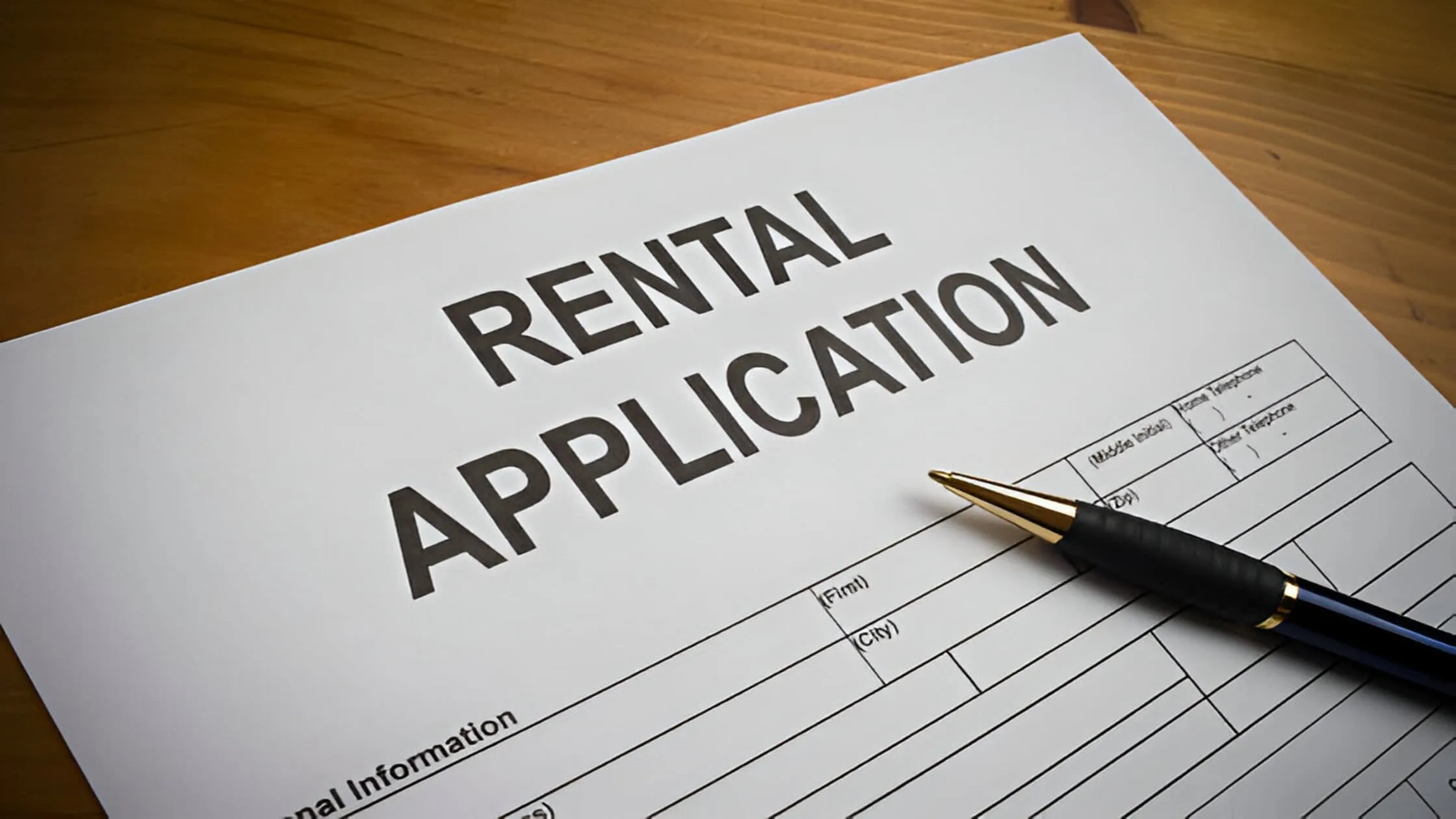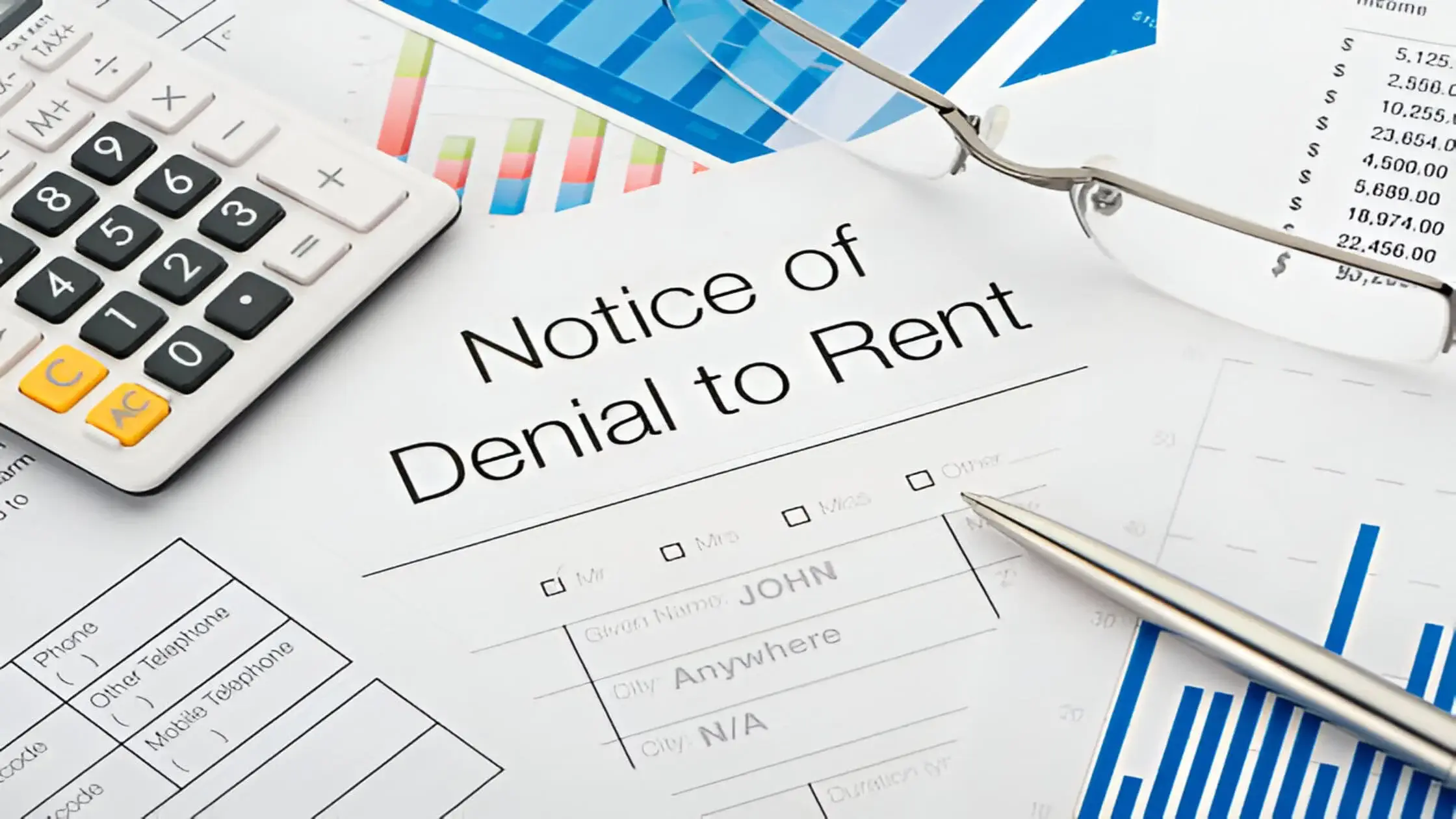Rental application denial letter is a simple but important task every landlord must handle. A clear letter protects your business and helps avoid legal issues. For example, if a tenant fails the credit check, send a short rental application rejection letter that says so politely. If the income is too low, explain the rule in a calm way.
When asking how to politely decline a rental applicant, use neutral words—thank them for their time and wish them well. At LeaseRunner, we guide landlords through writing each rental application denial letter sample the right way. If the reason is credit, include the agency details. If it's income or references, keep it simple.
And remember, can a landlord reject an application for any reason? No. Only legal reasons apply. Later in this guide, we show how to answer questions and protect your records.

Quick Facts: Rental Application Rejection Letters
An Overview of Rental Application Deny Letters
Rental application denials happen in every market. Here's what these letters are, why they matter, and when to send one.
What Is a Rental Application Denial Letter?
A rental application denial letter is a written notice to inform an applicant that their request to rent a property has been declined. It is both a record of the landlord's decision and an important best practice in property management. This letter is often sent via email, but can also be mailed for formal documentation.
For modern landlords who use digital tenant screening—such as those following a robust tenant screening checklist —the denial letter is a natural part of the workflow. It clarifies the decision and can prevent misunderstandings or formal disputes down the road.
Why Landlords Send Rejection Letters?
Landlords send a rental application rejection letter due to the following reasons:
- Statutory compliance: FCRA or state laws may mandate a written notice when rejecting due to credit checks or background checks.
- Clarity: An honest letter provides applicants with closure, establishes a business tone, and avoids emotional responses or web complaints.
- Risk management: In case a tenant sues for discrimination, your best defense is a polite, direct, and neatly typed letter. Most experts would say that investing the time to learn how to deny a tenant application example for your situation protects your business.
When Should You Send a Denial Letter?
The right time to send a rental application denial letter is as soon as you decide not to proceed with the rental. Promptness shows respect and prevents applicants from waiting for an answer. It also prevents misunderstandings; someone rejected quickly is much less likely to complain than someone who waited for weeks.
Best practice tip: Always send your polite letter to decline holding a sample within 24 hours of your decision. If credit checks played a role, you are required to notify the applicant and include specific details per FCRA guidelines.
Common Valid Reasons to Deny a Tenant Application

Every landlord needs to know which reasons are valid for denying a rental application. Valid, legal reasons include:
- Bad credit history: Credit is the most frequent cause of rejection of a rental application. Examples include late payment, bankruptcy, or a high level of debt in a credit report.
- Not enough income: An applicant's failure to establish adequate income to cover the rent (usually 2.5–3 times the value of the rent).
- Unacceptable background or eviction history: Pre-evictions, criminal charges that relate to property management.
- Poor references: Bad referrals by current or former landlords or employers.
- Incomplete or tampered application: Missing documents, contradictory responses, or fraud reported.
Top recommendation: Utilize a robust set of questions to ask tenants and verify responses as part of your procedure.
Invalid Reasons Under the Fair Housing Act
Landlords are never allowed to reject an applicant for reasons that are considered discrimination under federal, state, or local law. The Fair Housing Act prohibits denial based on:
- Race, color, or national origin
- Religion
- Family status or children
- Sex, gender identity, or sexual orientation
- Disability or mental health
- Age in some localities
Asking “Can a landlord reject an application for any reason ?”—the answer is “No.” Rejections must be lawful, justified, and never based on protected characteristics. Even if you use a template or rental application denial letter sample, double-check that you are never referencing or implying an illegal reason.
7 Must-Include Factors in a Rental Application Denial Letter

A strong rental application denial letter covers these seven essentials. Missing even one could lead to trouble or confusion.
- 1. Applicant name
- 2. Application date
- 3. Reason for denial (optional/legal)
- 4. Contact info for credit agency (if used)
- 5. Statement of rights (credit dispute)
- 6. Clear, neutral language
- 7. Landlord signature
1. Applicant name
Always address the applicant by their full legal name as listed on the application. This ensures clarity and prevents mix-ups if there are multiple applicants or roommates.
2. Application date
Include the original submission date of the rental application. This provides a clear timeline and helps both parties keep records.
3. Reason for denial (optional/legal)
If you base your decision on a credit or background check, you must include the specific reason (for example, “rental application denied due to credit”).
If your state allows, give a brief, neutral explanation such as “income does not meet requirements” or “background check does not pass criteria.” In many cases, it is safer to give a general reason rather than a detailed one.
4. Contact info for credit agency (if used)
Whenever a decision is based on credit, include the name, address, and telephone number of the credit reporting agency. This is both an FCRA requirement and good landlord practice.
5. Statement of rights (credit dispute)
Inform the applicant that they can request a free copy of their credit report and challenge unverifiable or incomplete information with the agency. This shields you from litigation and is an essential component in every rental application denial letter template.
6. Clear, neutral language
When writing your letter, stay with the formal, non-judgmental language. Phrases such as "We are so sorry that we cannot accept your application now" are suggested.
7. Landlord signature
Use your formal name and title (or your property management firm's name if you have one) to sign and date the letter. This finalizes the decision and ends the communication loop.
Free Rental Application Denial Letter Templates for Landlords

Keep reading for some pre-written examples that you can adapt to suit your needs, be it a courteous letter to reject a tenant sample, a rental application denial letter sample due to credit problems, or wording where there are no references.
Sample #1. Polite Letter to Decline Tenant
This is a polite sample tenant rejection letter that meets the minimum standards for a rental application denial letter.
Sample #2. Rejection Due to Credit Report
This is a sample of a rental application rejection letter that complies with FCRA and responds to the popular question: rental application denied due to credit—how do you inform the applicant?
Sample #3. Rejection Due to Income or References
This is an illustration of how one can nicely reject a rent applicant where credit isn't the issue, but simply the compatibility isn't working.
Best Practices for Landlords When Communicating Rental Rejections

How you word a rental application rejection letter makes a difference. It makes your reputation. Here's how to do it correctly—and what can happen if you don't.
Keep Records of the Rejection
Document every step. Save copies of all correspondence, including letters, emails, and notes on any telephone calls or responses from tenants.
If an objection is raised against your decision down the line, you have a paper record of unbiased, legal communication. Good records are especially valuable if your rental application is denied due to credit, and you must document compliance.
Responding to Tenant Follow-Up Questions
If a declined applicant asks for more information, respond within a reasonable time using calm, neutral language. Avoid emotional or personalized responses. For each reply, reference the original denial and your tenant screening policy.
Use Clear, Neutral Language
Do not use language that could be seen as accusatory. For example, instead of “Your credit is bad,” say, “Our decision was based on information provided in your credit report.”
Respond Within Legal Timeframes
In a conclusion of a rejection due to a credit or background check in some states, you are required to mail the letter of refusal on time (usually 3 business days). Delayed mailing not only infuriates the tenant but also can lead to legal action.
Know When to Recommend an Appeal or Reconsideration Option
At times, particularly for borderline situations, you will want to leave the door open. For instance, "If you think your application is in error or wish to submit additional information, please send supporting documents for reconsideration." Failure to practice these can generate disputes, Fair Housing complaints, or even internet business reputation harm.
How to Handle Reconsideration Requests from Tenants?

Applicants can appeal, particularly where a rental application refusal letter is based on credit or references. The following is how to manage appeals without undermining legal issues or delays.
- Acknowledge the Request: Always be quick to respond and acknowledge receipt of the request.
- Request Documentation: If the applicant alleges an error (e.g., bad credit reporting), ask that they submit new, supportive documentation.
- Document Communication: Answer in writing—email is fine. If you change your mind, email a new authorization with new terms.
- Follow Policies: Use the same objective screening criteria for reconsiderations. This avoids any inference of favoritism or discrimination.
Know When to Turn Down Again: If the new information won't alter the decision, politely send a brief summary reaffirming the rejection. For wording, refer to how to reject a tenant application sample and borrow from the initial rejection letter as a model of clarity.
Summary
A denial letter for a rental application is a vital business letter for every landlord. It is advisable to send it in good time, in neutral language, to document every communication, and to always comply with fair housing laws.
By including the name of the applicant, date applied, reason for denial (if permitted), credit agency phone (when necessary), statement of rights, and your signature, you cover your rental business and build an equitable, open image.
Mistakes can happen when denying an applicant—especially if you skip steps in the screening process. If you’re unsure, refer to resources like LeaseRunner’s tenant screening guide and denial letter templates, or consider using our tenant screening services to streamline the process.
FAQs
Q1. How do you politely decline a rental applicant?
The best method to politely reject a rental applicant is by sending a brief professional letter or email. Be sure to make the communication respectful and impartial. Always begin by thanking the applicant for his/her time and showing interest. Never use terms that sound rude or personal. For instance:
"Thank you for submitting an application to rent 456 Oakwood Avenue. We will not be pursuing your application after review. We appreciate your consideration and hope you find a rental soon."
Don't use blame language. This is polite yet firmly closes the conversation. You can see a complete polite letter declining a tenant example above in this guide.
Q2. How to reject a tenant application example?
If you are not sure how to deny a tenant application, begin with a letter containing: the applicant's name, date of application, and a clear reason. If credit checks or background checks were individually made the decision, state that legally.
A good rental application denial letter sample comprises the credit agency name, a dispute rights notice, and an official signature at the end. This format confirms your decision and creates clarity.
For instance:
"Your request of March 5, 2025, is denied based on the information contained in the credit report provided."
Include contact information of the credit bureau and state the applicant's rights by law to access their report.
Q3. Can a landlord reject an application for any reason?
No. The response to whether or not a landlord may reject an application for any reason is definitely no. You can reject someone on the basis of good business or financial purposes, e.g., bad income, bad credit, or absence of application forms.
But you cannot reject someone due to any protected class under the Fair Housing Act. These are race, religion, sex, disability, national origin, or family status.
For instance, denying a family because they are having children is unlawful. Denying someone because their income is below your minimum is lawful. Your denial should always be based on reasons that are lawful and documented.
Q4. What should I include in a rental application denial letter?
The following seven details must be included in all rental application denial letters:
- The full name of the applicant.
- The date the application was received.
- The reason for rejection (general or specific - if justified).
- Address for contact of the credit reporting agency utilized (if applicable).
- Brief statement regarding applicant's right to dispute credit information.
- Neutral language, non-accusatory in tone.
- Full name, position, and firm or property management company formal signature.
Using this format, you can be sure that your letter is complete and expresses your conclusion in a fair and open manner. For a preview of a step-by-step analysis, refer to our 7 things to include in a rental application rejection letter above.
Q5. Do you have a polite letter to decline holding a sample?
Yes. The model polite letter to decline a tenant in this article can be copied or adapted to suit your rental policy. It uses soft, respectful language and offers closure to the applicant without being negative. It is crucial in maintaining professionalism in tenant communication.
Q6. Are there templates for rental application denials?
Yes. A couple of rental application denial letter sample templates are available in this resource. You can select credit rejection, reference, or income problems, and general denial templates. Each template states legal disclosures and steers clear of hazardous or discriminatory language.







